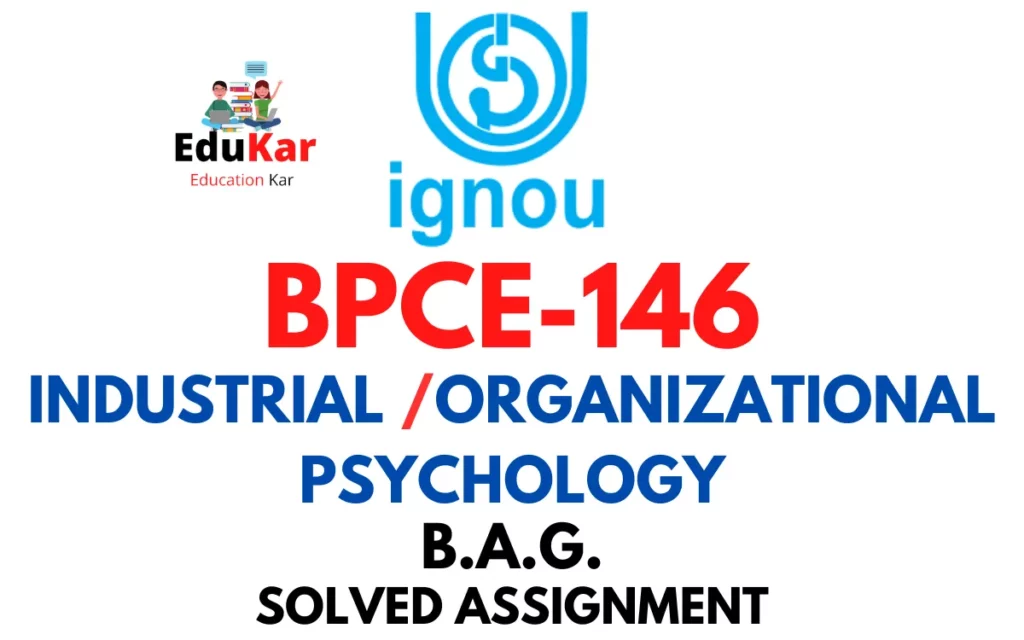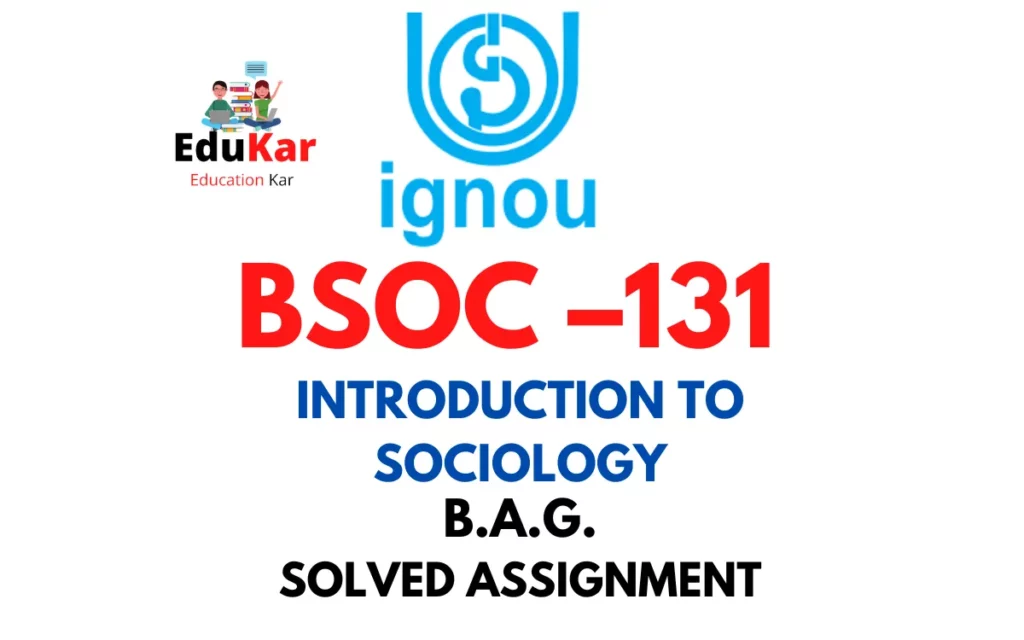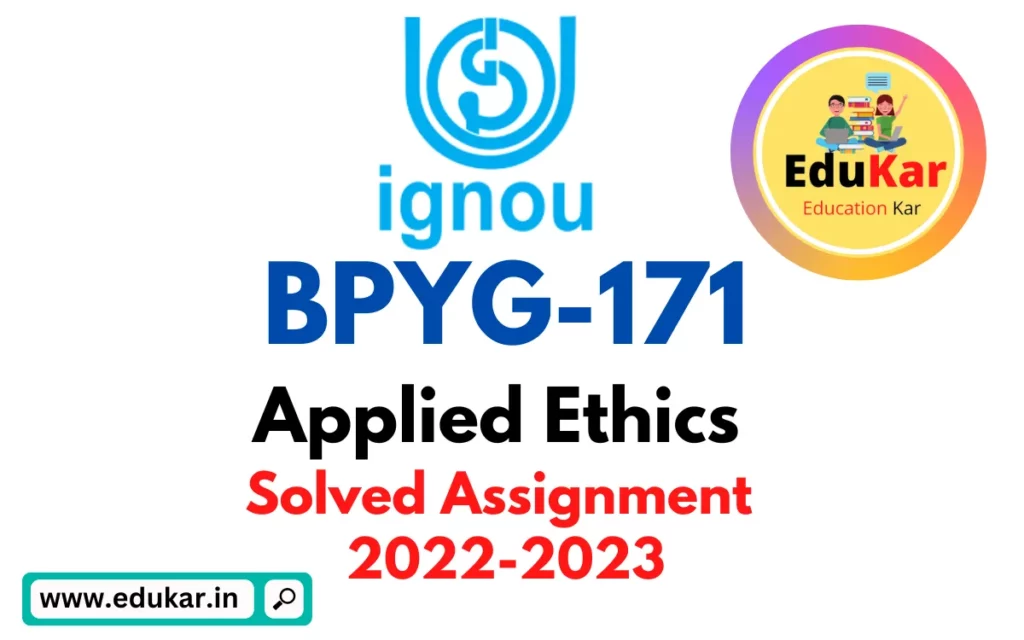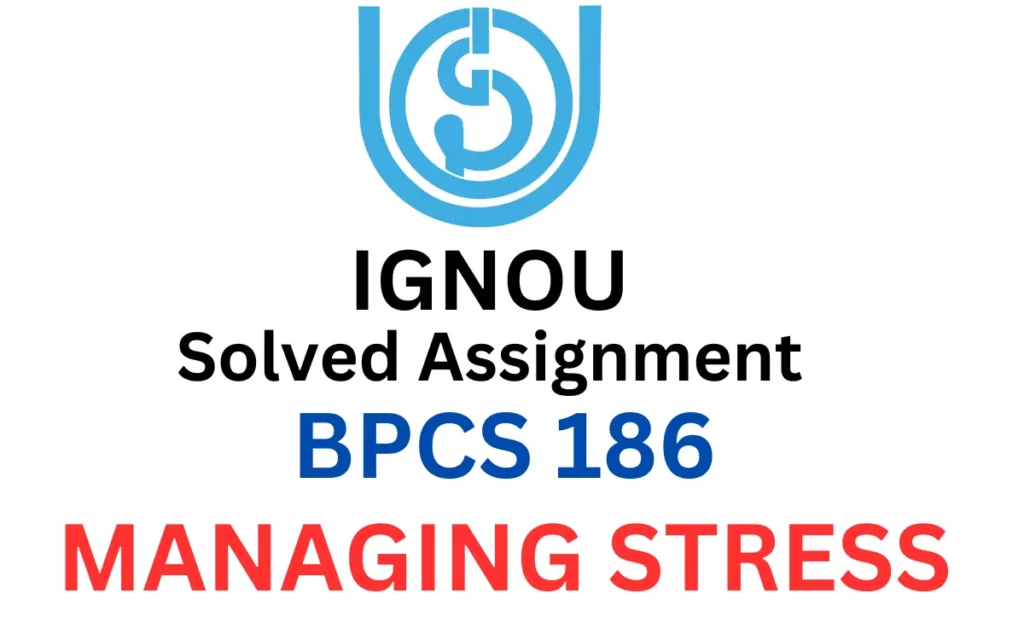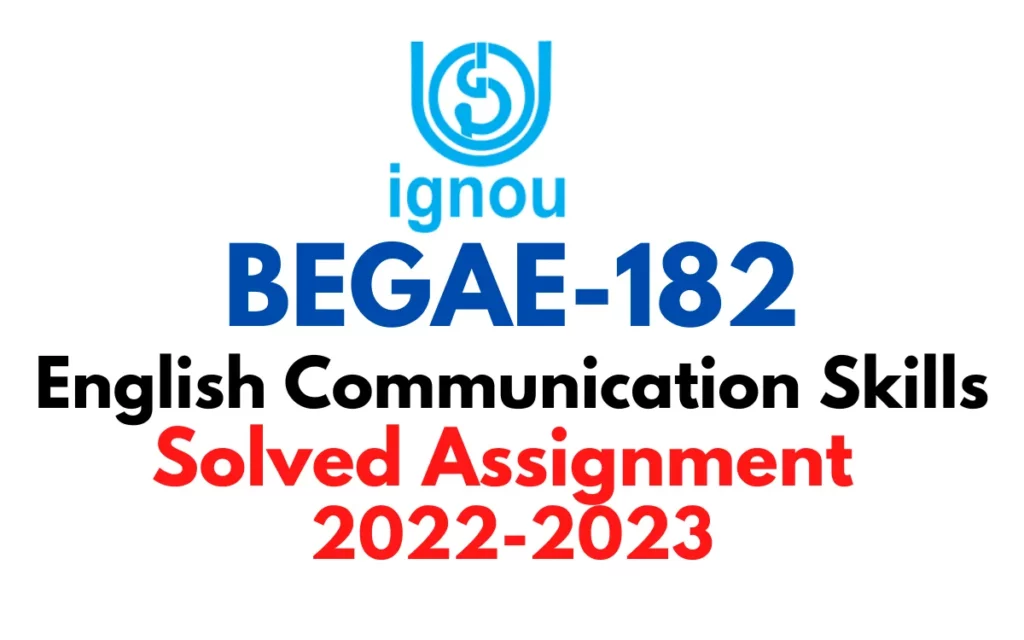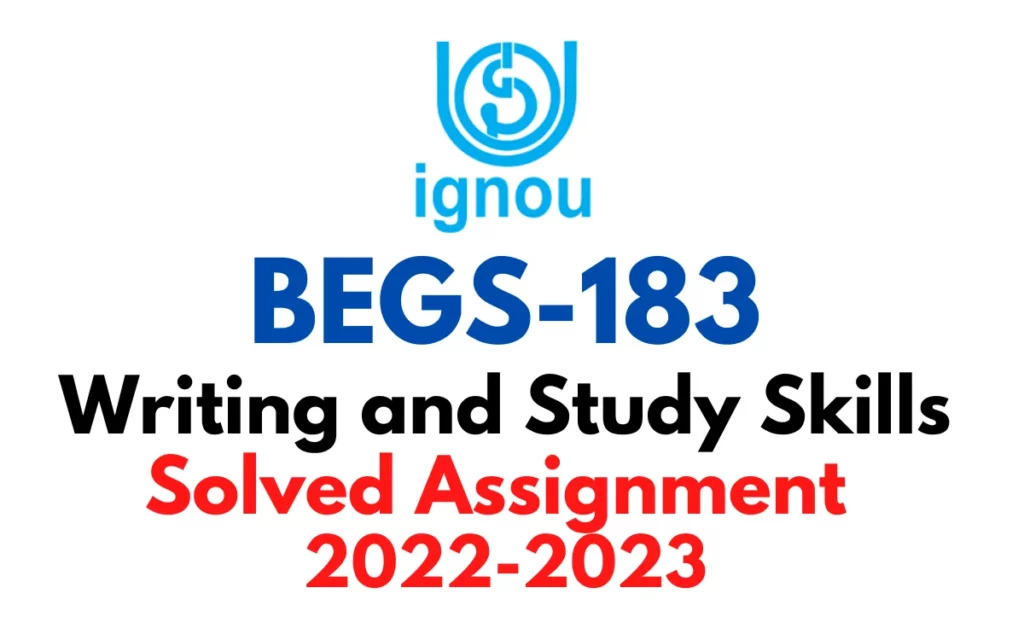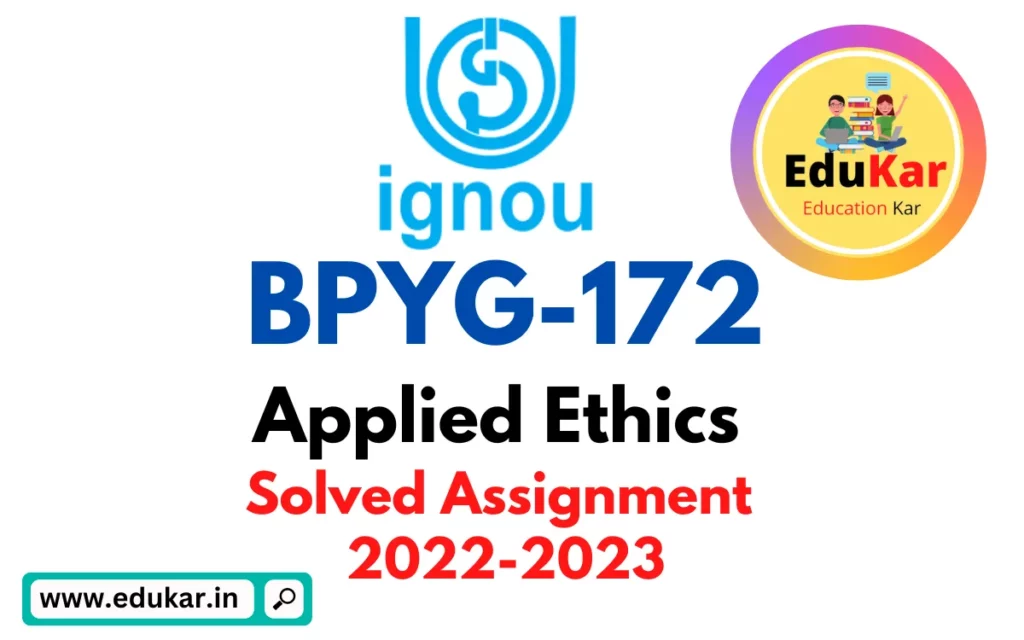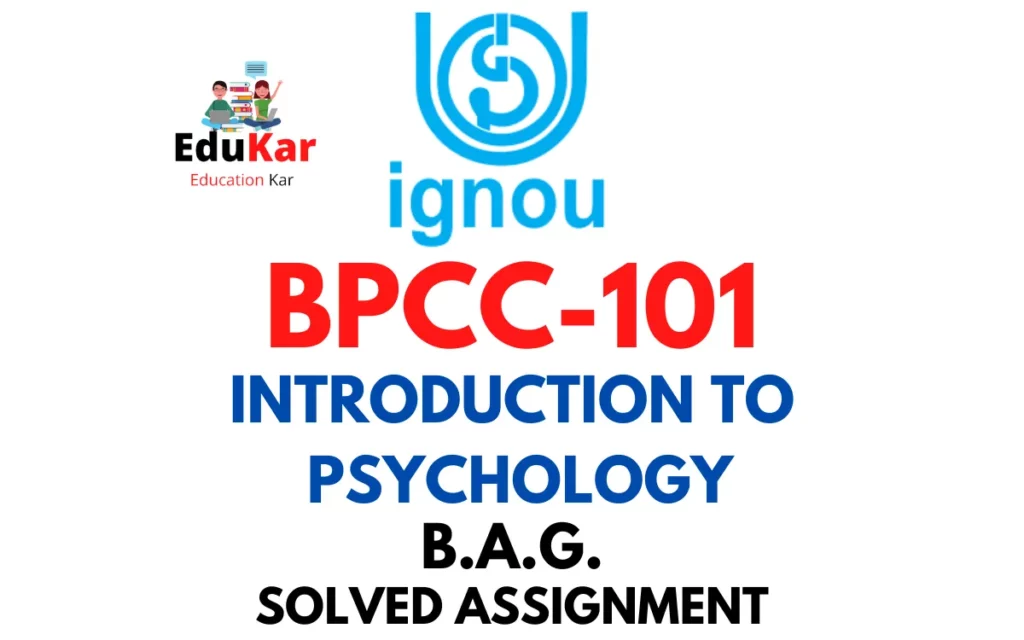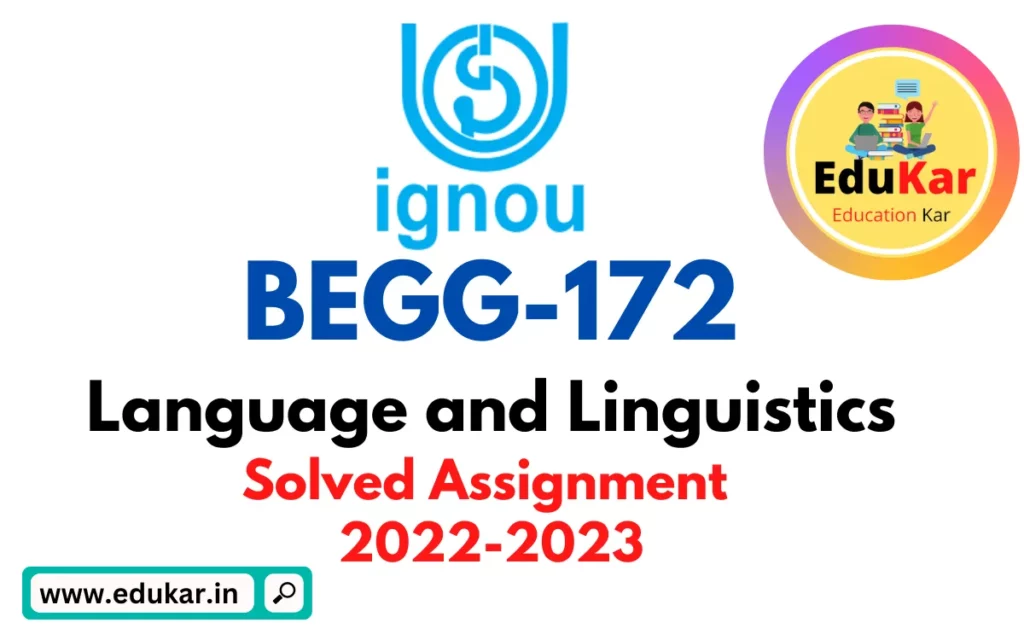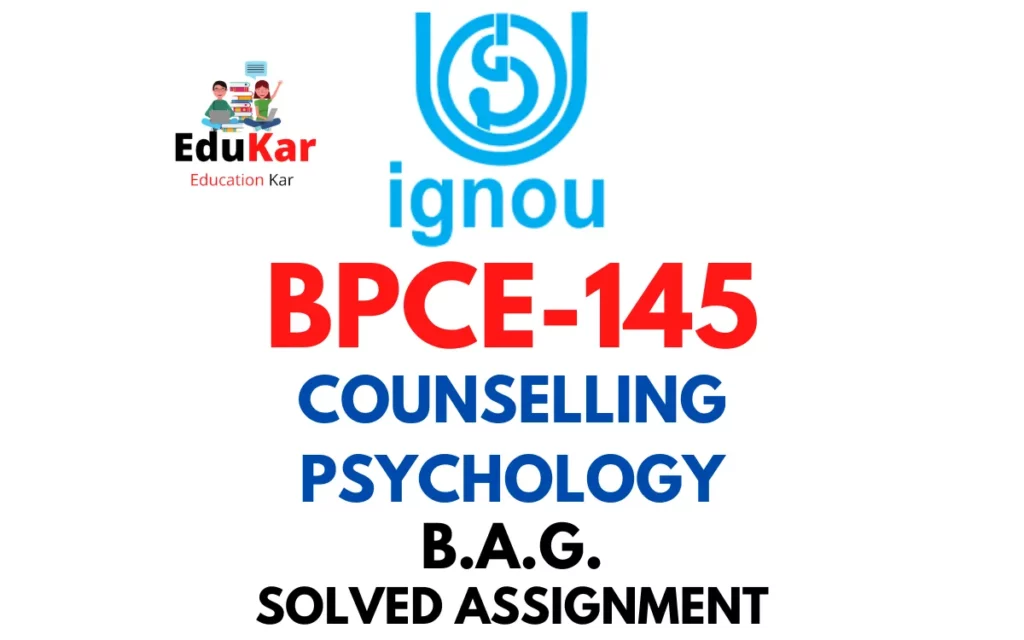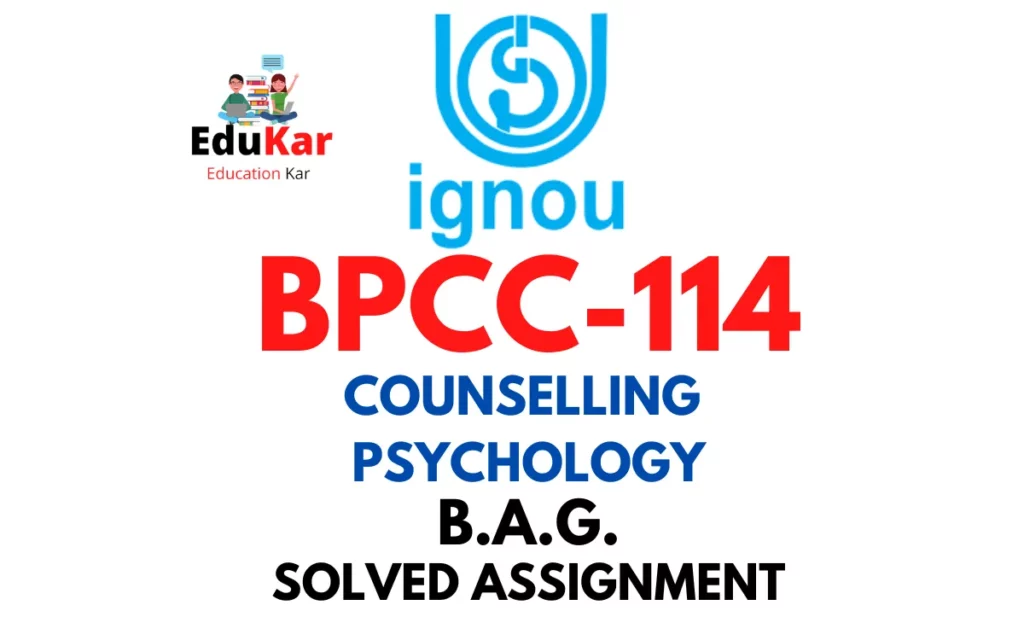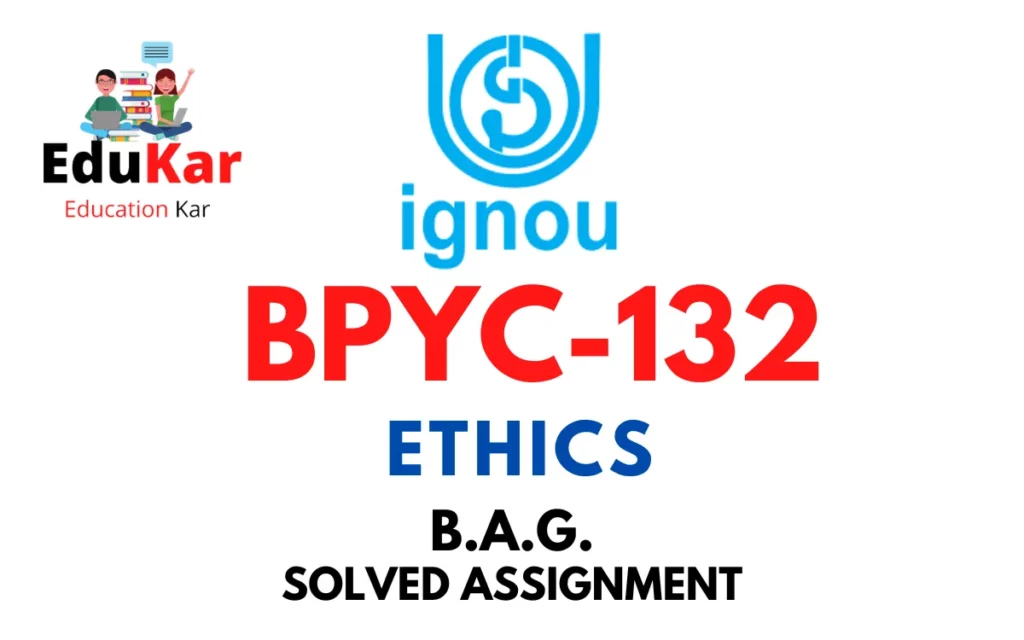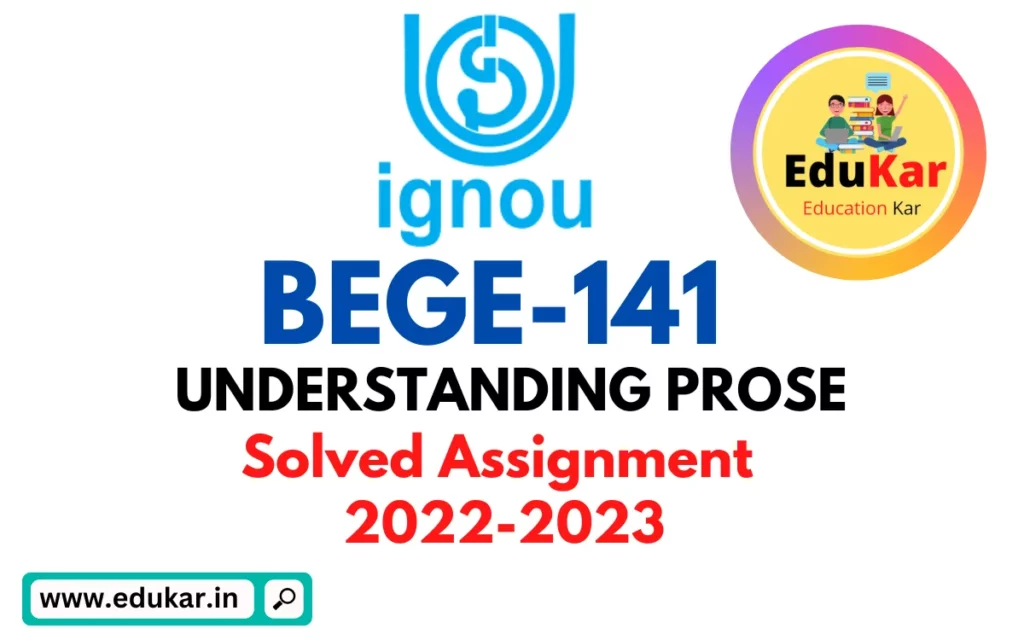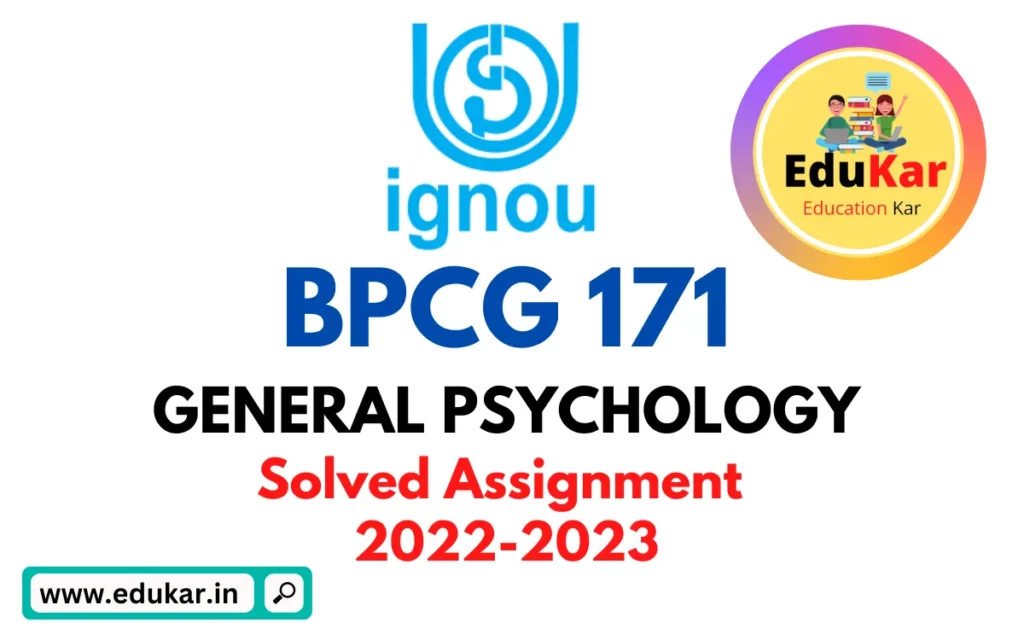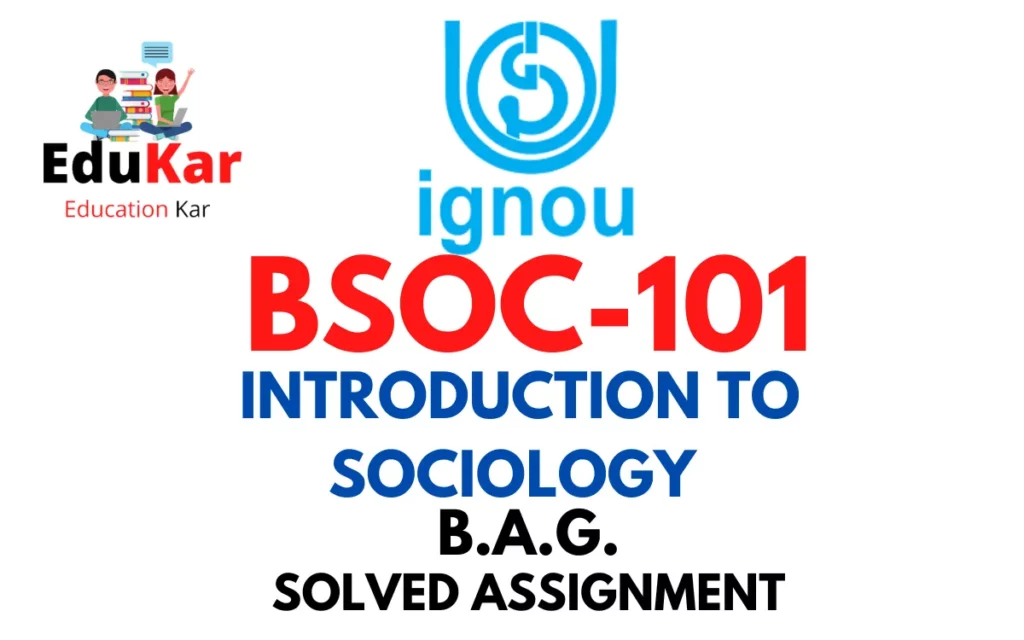Contents
- 1 Assignment A
- 2 Answer the following questions in about 500 words each.
- 3 1. Explain the concept and significance of lifelong learning.
- 4 2. Discuss different types of leaning societies.
- 5 Assignment B
- 6 Answer the following questions in about 250 words each.
- 7 3. Explain the Theory of Praxis with special reference to lifelong learning.
- 8 4. Discuss different aspects of global interventions for lifelong learning.
- 9 5. Explain, with suitable examples, the concept of ‘Communities of Practice’.
- 10 6. What are the critical issues and concerns in lifelong learning? Discuss.
- 11 Assignment C
- 12 Answer the following questions in about 125 words each.
- 13 7. How do you categorise the participants of lifelong learning?
- 14 8. What are the distinguishing features of a lifelong learning approach?
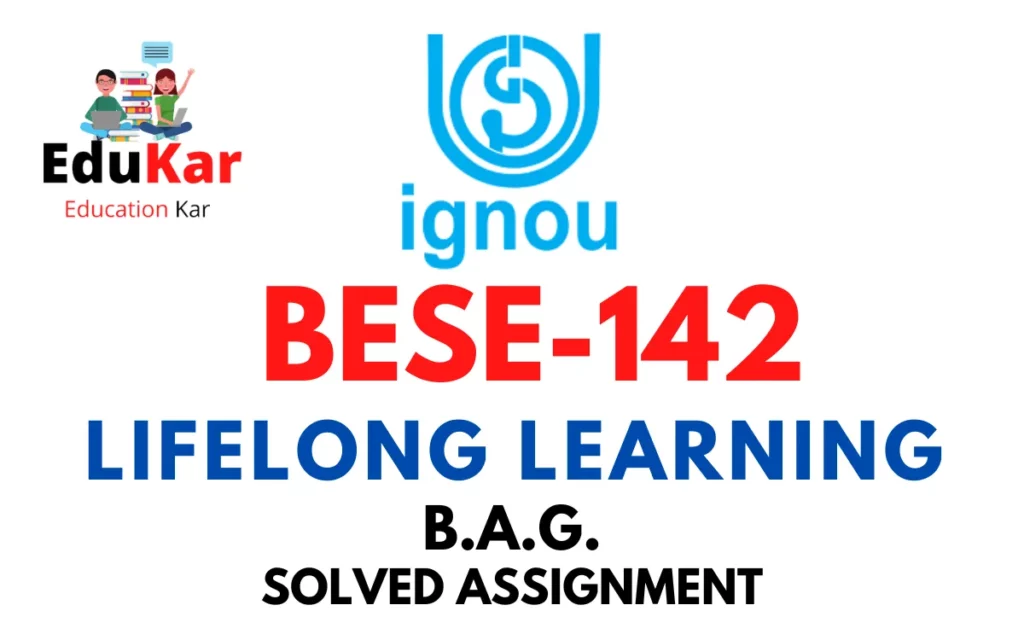
| Title | BESE-142: IGNOU BAG Solved Assignment 2022-2023 |
| University | IGNOU |
| Degree | Bachelor Degree Programme |
| Course Code | BESE-142 |
| Course Name | LIFELONG LEARNING |
| Programme Name | Bachelor of Arts (General) |
| Programme Code | BAG |
| Total Marks | 100 |
| Year | 2022-2023 |
| Language | English |
| Assignment Code | BESE-142 /TMA/January 2023 |
| Assignment PDF | Click Here |
| Last Date for Submission of Assignment: | For June Examination: 31st April For December Examination: 30th September |
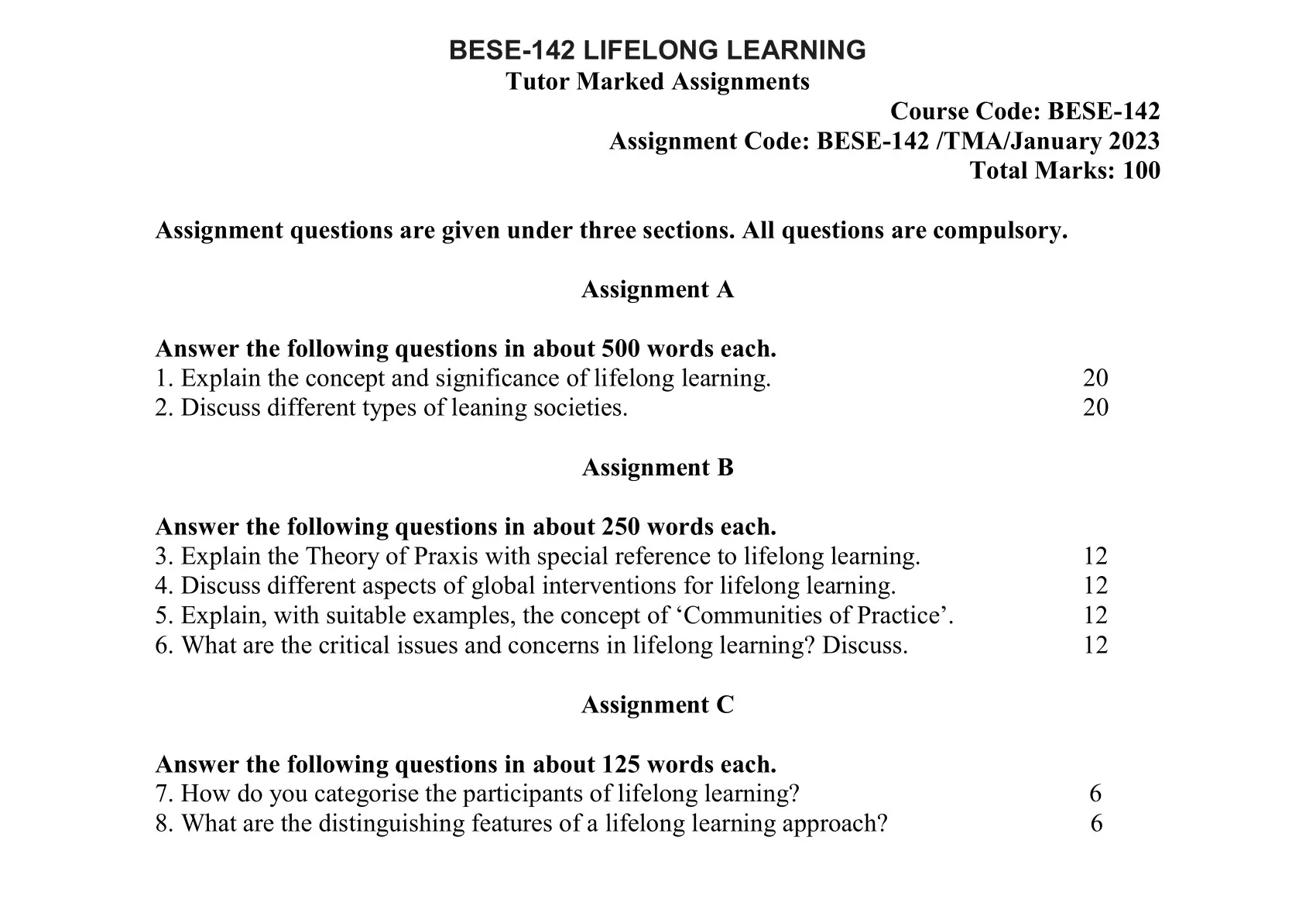
Assignment A
Answer the following questions in about 500 words each.
1. Explain the concept and significance of lifelong learning.
Ans: Lifelong learning refers to the process of continually seeking knowledge and skills throughout one’s lifetime. It involves actively engaging in learning activities to enhance one’s personal and professional development, regardless of age or stage of life. The significance of lifelong learning lies in the fact that it helps individuals adapt to an ever-changing world and succeed in their personal and professional lives.
The benefits of lifelong learning are numerous. For one, it keeps the mind active and sharp, which is crucial in maintaining cognitive health and preventing age-related cognitive decline. Additionally, lifelong learning can lead to personal growth and self-improvement, as individuals gain new knowledge and skills that can be applied to various aspects of their lives. Lifelong learning can also increase job satisfaction and employability, as individuals acquire new skills and knowledge that are relevant to their profession or desired career path.
One of the most significant benefits of lifelong learning is its ability to promote innovation and creativity. Learning new ideas and concepts can spark creativity and provide new insights and perspectives, which can lead to innovative solutions in various fields. Additionally, lifelong learning can enhance problem-solving skills, critical thinking abilities, and decision-making capabilities, all of which are important for success in both personal and professional contexts.
Lifelong learning can also foster social connections and relationships. It provides opportunities to meet new people, network with like-minded individuals, and engage in meaningful discussions and activities. Additionally, lifelong learning can promote cultural awareness and understanding, as individuals learn about different cultures, customs, and traditions.
In today’s rapidly changing world, lifelong learning has become more critical than ever. Technological advancements, economic changes, and demographic shifts have transformed the workforce, and individuals need to continually update their skills and knowledge to remain competitive and relevant. Moreover, with the rise of automation and artificial intelligence, the skills required to succeed in the future workforce are likely to be vastly different from those needed in the past. Thus, lifelong learning is essential for staying ahead of the curve and adapting to these changes.
There are many ways to engage in lifelong learning, from formal education programs to informal learning opportunities. Formal education can include enrolling in college courses, vocational training, or certification programs. Informal learning can include reading books, attending workshops and conferences, watching educational videos, and participating in online communities and forums. With the widespread availability of online learning resources, lifelong learning has become more accessible than ever.
2. Discuss different types of leaning societies.
Ans: A learning society is a community that is committed to lifelong learning, collaboration, and sharing of knowledge. Learning societies are based on the premise that knowledge is not static, but rather it is dynamic and continually evolving. There are various types of learning societies that exist, each with its unique characteristics and objectives. In this essay, we will discuss four different types of learning societies.
- Formal learning societies:
Formal learning societies are based on the traditional education system that is governed by institutions such as schools, colleges, and universities. These societies focus on formalized education programs, curriculum-based learning, and the attainment of degrees and certifications. Formal learning societies have structured learning processes that are led by qualified instructors, and students have set timetables for attending classes. The education in formal learning societies is typically delivered through lectures, tutorials, and assignments, and the emphasis is on assessment and the achievement of grades.
- Informal learning societies:
Informal learning societies are more flexible and less structured than formal societies. They are based on the principle that learning can take place in any context, and from any source. Informal learning societies may take the form of online communities, social media groups, or meetups where people gather to share knowledge and expertise. In informal learning societies, learning is self-directed, and individuals have the freedom to choose their learning path. The emphasis is on collaborative learning, sharing of knowledge, and the development of new skills and competencies.
- Lifelong learning societies:
Lifelong learning societies are based on the idea that learning is a lifelong process, and individuals should be committed to continually developing their skills and knowledge. These societies focus on providing learning opportunities for people of all ages, regardless of their background, education level, or profession. Lifelong learning societies may offer classes, workshops, and training programs that are designed to meet the diverse learning needs of the community. The emphasis is on personal growth and development, and the acquisition of knowledge and skills that can be applied to different aspects of life.
- Open learning societies:
Open learning societies are based on the principle that education should be accessible to everyone, regardless of their social or economic status. These societies provide free or low-cost learning opportunities through open educational resources such as Massive Open Online Courses (MOOCs) and Open Educational Resources (OERs). Open learning societies focus on providing education that is flexible and adaptable to the diverse learning needs of the community. The emphasis is on democratizing education and providing equal opportunities for all to acquire knowledge and skills.
Assignment B
Answer the following questions in about 250 words each.
3. Explain the Theory of Praxis with special reference to lifelong learning.
Ans: The Theory of Praxis, also known as the Theory of Reflective Practice, is a framework that describes the cyclical process of experiential learning and action. Developed by educational theorist and philosopher Paulo Freire, the Theory of Praxis emphasizes the importance of critical reflection, action, and ongoing learning in the process of personal and social transformation.
In the context of lifelong learning, the Theory of Praxis suggests that learning is not simply a passive acquisition of knowledge, but rather an active process of reflection, experimentation, and application. Individuals engage in lifelong learning by critically reflecting on their experiences, identifying areas for growth and development, and taking action to apply new knowledge and skills in their lives and communities.
The Theory of Praxis highlights the importance of dialogue and collaboration in the lifelong learning process. Through ongoing engagement with others, individuals can share knowledge and experiences, challenge their assumptions and biases, and develop a deeper understanding of the world around them. By continually reflecting on their experiences and taking action to address social and personal challenges, individuals can create meaningful change and contribute to a more just and equitable society.
4. Discuss different aspects of global interventions for lifelong learning.
Ans: Global interventions for lifelong learning refer to policies and programs that aim to promote and support lifelong learning opportunities for individuals across the world. There are several key aspects of global interventions for lifelong learning, including:
- Access: One of the primary goals of global interventions for lifelong learning is to improve access to education and training opportunities for individuals, particularly those who may face barriers to education such as poverty, disability, or geographic location. This may involve investing in infrastructure, technology, and outreach programs to make education more accessible to underserved communities.
- Quality: While access to education is important, it is also essential to ensure that the education and training opportunities available are of high quality. Global interventions for lifelong learning may involve developing and implementing standards for education and training programs, as well as providing support and resources to help educators and trainers improve their skills and knowledge.
- Relevance: In order to be effective, lifelong learning opportunities must be relevant to the needs and interests of individuals and communities. Global interventions for lifelong learning may involve conducting needs assessments to determine what types of education and training are most in demand, and developing programs that are tailored to these needs.
- Partnership: Collaboration and partnership are key aspects of global interventions for lifelong learning. This may involve working with governments, NGOs, educational institutions, and other stakeholders to develop and implement policies and programs, as well as sharing knowledge and resources across different organizations and sectors.
- Evaluation: Finally, it is important to continually evaluate the effectiveness of global interventions for lifelong learning, in order to identify areas for improvement and ensure that resources are being used effectively. This may involve collecting and analyzing data on participation, outcomes, and impact, and using this information to inform future policy and program development.
5. Explain, with suitable examples, the concept of ‘Communities of Practice’.
Ans: Communities of Practice (CoP) is a concept that refers to groups of individuals who share a common interest, profession, or goal and who interact and collaborate to achieve mutual learning, knowledge sharing, and problem-solving. CoPs are characterized by the development of shared language, knowledge, and practices, as well as the formation of social relationships and trust among members. In a CoP, individuals come together to learn from each other and collaborate in the pursuit of a common goal. The concept of CoP has been widely applied in various fields, including education, healthcare, business, and technology.
For example, in the field of education, CoPs can be found in teacher professional development. Teachers can form CoPs to share knowledge and best practices, collaborate on projects, and solve problems related to teaching and learning. CoPs can be established at the school or district level, or they can be online communities that bring together teachers from different regions and countries.
In healthcare, CoPs can be found in clinical practice where healthcare professionals collaborate to improve patient outcomes. For example, physicians, nurses, and other healthcare professionals can form a CoP to share knowledge and best practices, collaborate on patient care, and develop new treatment protocols.
In business, CoPs can be found in project teams or cross-functional teams that bring together employees from different departments and levels to solve complex problems or develop new products. CoPs can also be established among employees who share common interests or skills to share knowledge, mentorship, and career development opportunities.
In technology, CoPs can be found in open-source software communities, where developers from different parts of the world collaborate to develop software and solve problems. CoPs can also be established in online forums or social media groups that bring together technology professionals to share knowledge and expertise.
6. What are the critical issues and concerns in lifelong learning? Discuss.
Ans:
Lifelong learning has become an increasingly important concept in today’s rapidly changing and complex world, as individuals must continually adapt and develop new skills and knowledge throughout their lives in order to remain competitive and engaged in society. However, there are several critical issues and concerns that must be addressed in order to ensure that lifelong learning opportunities are accessible, effective, and equitable. These issues and concerns include:
- Access and equity: One of the most significant challenges in lifelong learning is ensuring that all individuals have access to education and training opportunities, regardless of their background or circumstances. This requires addressing issues such as poverty, geographic location, and discrimination, and developing programs and policies that are inclusive and accessible.
- Relevance and quality: In order to be effective, lifelong learning opportunities must be relevant to the needs and interests of individuals and communities, and must be of high quality. This requires ongoing investment in education and training programs, as well as the development of standards and evaluation frameworks to ensure that programs are meeting the needs of learners.
- Funding and sustainability: Lifelong learning programs require ongoing investment in order to be sustainable and effective. This can be a challenge, particularly in areas where funding for education is limited or uncertain. Finding innovative funding models and partnerships, as well as ensuring that programs are cost-effective, are important considerations in ensuring the long-term sustainability of lifelong learning initiatives.
- Technology and digital literacy: As technology plays an increasingly important role in education and training, there is a growing need for individuals to develop digital literacy skills. However, not all learners have equal access to technology, and there is a risk of exacerbating existing inequalities. Ensuring that technology is used in a way that supports learning and promotes equity is an important consideration in the design and delivery of lifelong learning programs.
Assignment C
Answer the following questions in about 125 words each.
7. How do you categorise the participants of lifelong learning?
Ans: Participants of lifelong learning can be categorized in several ways, depending on their age, background, goals, and other factors. Some common ways of categorizing participants of lifelong learning include:
- Age: Lifelong learning is relevant for individuals of all ages, from young children to older adults. Programs and initiatives may be tailored to specific age groups, such as early childhood education, adult education, or senior education.
- Formal education level: Participants of lifelong learning may come from a range of educational backgrounds, from those who have not completed high school to those with advanced degrees. Programs may be designed to provide basic literacy and numeracy skills, or to provide advanced training and certification in specific fields.
- Professional background: Lifelong learning opportunities may be tailored to specific professions or industries, providing ongoing training and development for individuals working in fields such as healthcare, education, or technology.
- Motivation: Participants of lifelong learning may have a range of motivations for pursuing education and training, including personal interest, career advancement, or personal growth.
8. What are the distinguishing features of a lifelong learning approach?
Ans: A lifelong learning approach is characterized by the belief that learning is a continuous process that occurs throughout one’s life, and not just limited to formal education. The distinguishing features of a lifelong learning approach include:
- Learning as a lifelong process: A lifelong learning approach recognizes that learning does not stop at a certain age or with the completion of a degree or program.
- Self-directed learning: Individuals take responsibility for their learning and choose the topics, modes, and pace of learning that suit them best.
- Flexibility: Lifelong learning is flexible and adaptable to meet the changing needs of individuals and society.
- Informal and formal learning: Lifelong learning recognizes that learning can take place both inside and outside of formal educational settings.
- Personal and professional development: A lifelong learning approach encompasses both personal and professional development, allowing individuals to improve their skills, knowledge, and competencies in various aspects of life.
- Collaborative learning: Lifelong learning recognizes the value of learning from and with others, and encourages collaboration and knowledge sharing.
How to Download BESE-142 Solved Assignment?
You can download it from the www.edukar.in, they have a big database for all the IGNOU solved assignments.
Is the BESE-142 Solved Assignment Free?
Yes this is absolutely free to download the solved assignment from www.edukar.in
What is the last submission date for BESE-142 Solved Assignment?
For June Examination: 31st April, For December Examination: 30th October

